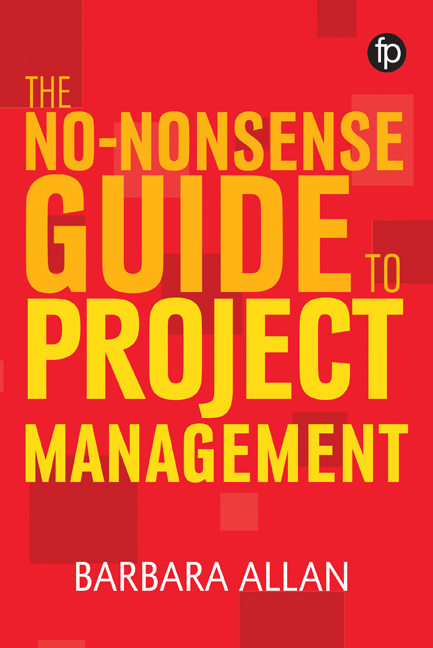Book contents
- Frontmatter
- Contents
- List of tables and figures
- List of case studies
- Acknowledgements
- 1 Introduction to the book
- 2 An overview of project management
- 3 Getting started
- 4 Planning the project
- 5 Implementation
- 6 Evaluation and dissemination
- 7 Using ICT to support project work
- 8 The money side of projects
- 9 The people side of projects
- 10 Working in partnership
- Index
- Frontmatter
- Contents
- List of tables and figures
- List of case studies
- Acknowledgements
- 1 Introduction to the book
- 2 An overview of project management
- 3 Getting started
- 4 Planning the project
- 5 Implementation
- 6 Evaluation and dissemination
- 7 Using ICT to support project work
- 8 The money side of projects
- 9 The people side of projects
- 10 Working in partnership
- Index
Summary
Introduction
This chapter outlines all the activities that need to take place before the project gains approval and can go ahead. Working through them when you are at the start of a potential project can help ensure that you get off to a good start.
At this early stage in the project process, think about defining the proposed project, the project leadership and management structures, and the people side of projects including team work and communications. Then think about technical aspects such as risk analysis, legal issues, finance, and project documentation. The result of this work is a project brief, a short written summary of the proposed project, which is then used to gain formal approval for the project.
Project initiation
Projects are initiated in many different ways: when developing a new strategy for the library service or introducing new technologies; following changes in the environment or funding; a crisis; or through personal interest. For example, a number of new library buildings have been developed in universities in response to changing demands and expectations of their student population. Many libraries have developed services that are accessible using new mobile technologies. Many public libraries have developed and implemented shared services as a result of financial pressures. In contrast, sometimes a library or information worker has a good idea during the course of their everyday work, in discussions with colleagues or as a result of attending a conference, and this then forms the basis of a project.
Coffin and Morrill (2015) discuss a model to promote innovation in Wisconsin Library Services (WiLS), a membership organisation involving over 600 libraries in Wisconsin USA, and their model helps to transform creative ideas into sound projects. They suggest that innovative projects have the following characteristics:
• are based on need and its potential impact
• have clear measures of success
• take into account conventions and norms
• are iterative
• provide a basis for organisational growth and learning.
- Type
- Chapter
- Information
- The No-nonsense Guide to Project Management , pp. 49 - 70Publisher: FacetPrint publication year: 2017



